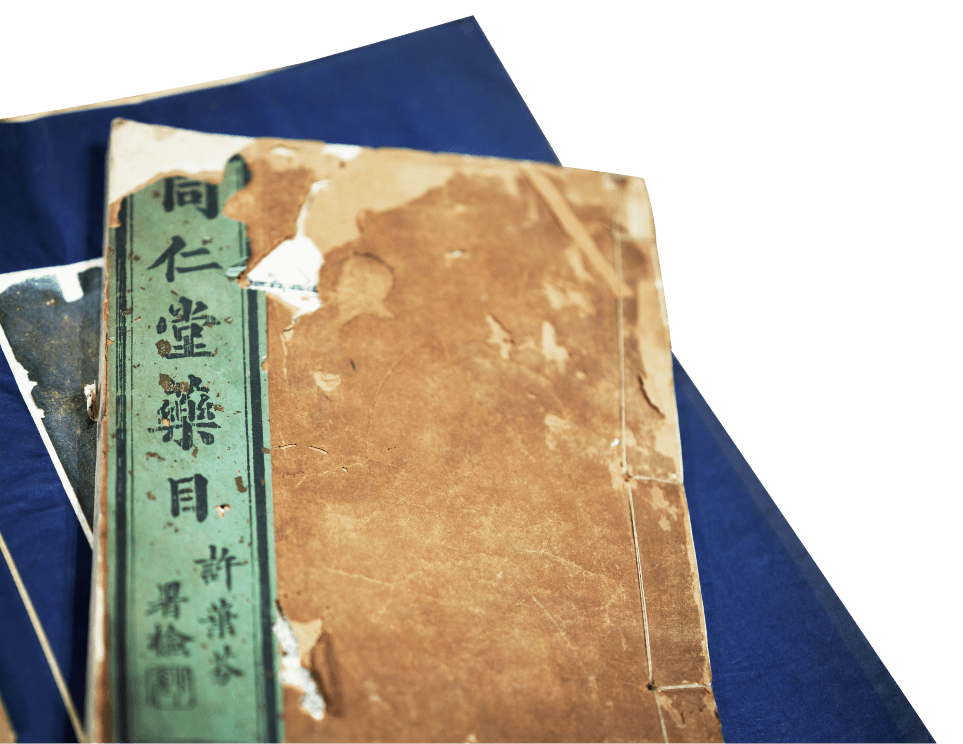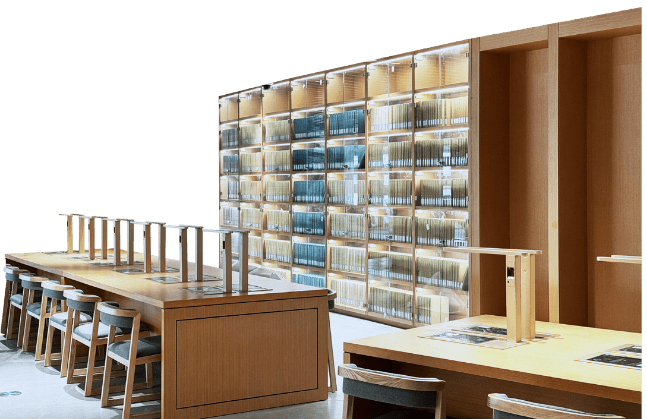

The Intangible Cultural Heritage Collection Division and Local Collection Division are located in the southeast of the first floor, with an indoor area of approximately 1,675 square meters, a design collection of 20,000 documents and 156 seats.
The Intangible Cultural Heritage Collection Division, as the first comprehensive space for reading intangible cultural heritage literature, provides new one-stop services that combine reading, exhibition and hands-on experience. Its collection covers various fields of China’s intangible cultural heritage. In addition to traditional reading, the Intangible Cultural Heritage Collection Division incorporates modern reading concepts. It utilizes techniques like document visualization, and incorporates intangible cultural heritage themed exhibitions as well as interactive experiences to create an immersive environment, where readers can learn about intangible cultural heritage “through people and objects, and in daily life”. Representatives of intangible cultural heritage projects, especially of those in the Beijing-Tianjin-Hebei Region, as well as experts and scholars in this field are invited to give lectures, performances and experience classes, so as to allow readers to have close contact with intangible cultural heritage. This is conducive to the coordinated development of the region. The Intangible Cultural Heritage Collection Division aims to serve as a vital platform for the inheritance and protection of intangible cultural heritage, which plays a crucial role in promoting the preservation, research and promotion of intangible cultural heritage.
Focusing on “Ancient Capital Culture, Red Culture, Beijing Culture and Innovative Culture”, the Beijing Local Collection Division comprehensively showcases local literary resources and, for the first time, introduces one-stop reading and consultation services regarding specialized shelves and relevant policies on “Coordinated Development of the Beijing-Tianjin-Hebei Region”.
The Local Collection Division also houses an urban think tank, to provide information, tools and a communication platform for decision-making departments of governments, enterprises and institutions. It serves as the knowledge and intellectual resource center of CLCN to promote Beijing’s urban construction and development.
